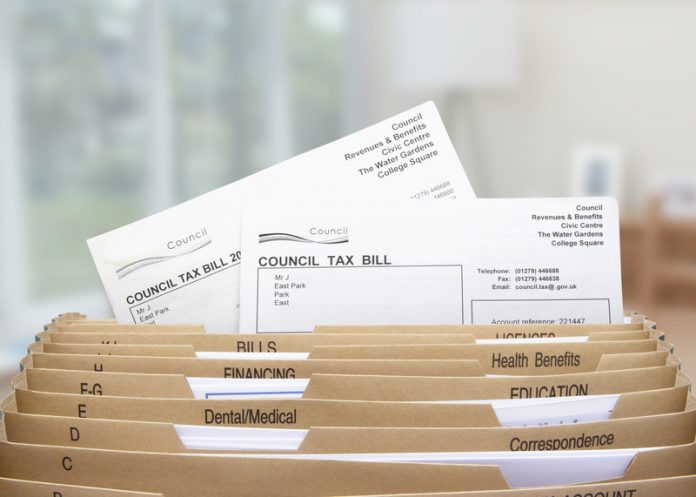Citizens Advice has called upon local authorities to amend harsh practices used to collect council tax following a 33 per cent surge in the number of requests for help with debts…
Over the past three years there has been a 33 per cent increase in the number of requests for help with council tax debts.
Citizens Advice said it had assisted some 196,000 people with this form of debt problem between April 2015 and March 2016. This makes it the top debt problem for the charity.
Now, Citizens Advice is calling on local authorities to stop practices that see people who miss a payment forced to pay the remaining annual cost in one lump sum. The charity also condemned the use of bailiffs and court actions against people who are already suffering financial problems.
Chief executive of Citizens Advice Gillian Guy said: “Some councils are too quick to crackdown on people falling behind on council tax.
“Of course it’s right people should repay their council tax – but calling in bailiffs, adding on extra charges or forcing someone to pay the rest of the year’s council tax bill in one lump sum can make the situation worse for everyone.
“Some councils have developed much fairer approaches to collecting debt and as a result get money back much faster.
“Even simple steps, like improving communication and offering a realistic repayment plan, can ease the strain on debtors and ensure councils get what they’re owed.
“It is really important councils review their debt collection practices to make sure they are helping people to overcome their debt problems rather than making their financial problems worse.”
Citizens Advice surveyed 1,100 people in England in relation to their debt. A total of 65 per cent who fell behind on payments were in work. Reasons for falling behind were given as a general lack of funds for 55 per cent, while 30 per cent revealed a fall in wages due to reduced working hours or redundancy. Only 25 per cent said they had fallen behind on payments due to cuts to tax credit or benefits.
A spokesman for the Local Government Association (LGA) said: “Councils have a duty to their residents to collect taxes so important services are not affected.
“But we realise that times are tough and do their best to protect those affected the most, whether through introducing hardships funds or taking a sympathetic and constructive approach to the way we collect unpaid tax.
“We agree that bailiffs should only ever be used as a last resort. Before the situation reaches a stage where bailiffs are involved several letters should have been written, people should have been encouraged to apply for financial support, and efforts should be made to arrange new payment plans or to attach the debt to a salary.
“We have worked closely with Citizens Advice on a protocol for councils using bailiffs when recovering debts. It includes the need for fair collection and enforcement policies and the ability for councils to take back cases involving vulnerable families.”
The Citizens Advice report warned that “some councils are escalating harsh collection practices too quickly” after 54 per cent of respondents to the survey said the actions of councils made it harder to clear their debt. Nearly half (48 per cent) said they had been visited by a bailiff, while only 30 per cent were offered any form of affordable repayment plan.
Furthermore, a total of 71 per cent said extra charges had been added to their bill, while 46 per cent said they had been asked for the outstanding balance of their bill for missing a payment.
A spokesman for the Department for Communities and Local Government said: “More than 97 per cent of council tax is collected with the vast majority of people paying their bills.
“We have also made it easier for households to pay their bills in monthly instalments and published guidance to stop bad practices from aggressive bailiffs.
“However, every penny of council tax that is not collected means a higher bill for everyone in the area so we expect councils to be sympathetic to those in genuine hardship, but take appropriate action to chase up outstanding debts.”











